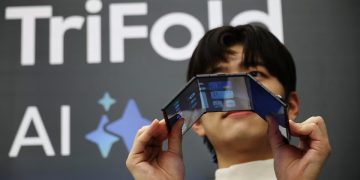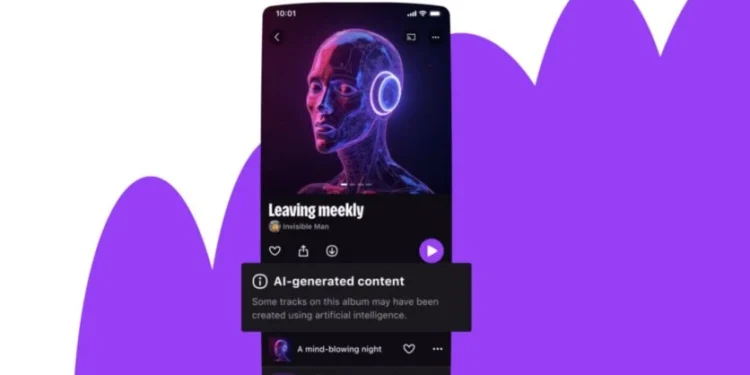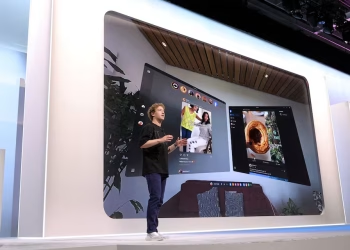French streaming platform Deezer is now tagging fully AI-generated music in what it calls a “global first”. This is done to protect artists’ earnings. Albums with AI tracks now carry a label that shows it has content generated by AI.
CEO Alexis Lanternier explained the reason behind the move: “We want to make sure that royalties supposed to go to artists aren’t being taken away” by tracks created from simple text prompts via tools like Suno or Udio.
Deezer CEO Alexis Lanternier said that the platform has “detected a significant uptick in delivery of AI-generated music only in the past few months”, adding: “We see no sign of it slowing down.”
The company says over 20,000 AI-generated songs are uploaded to its platform daily, doubling from 10,000 earlier this year. But Deezer isn’t deleting these tracks. Instead, it is demonetizing them. This means such content remains available, but won’t earn revenue or be pushed by the platform’s algorithms.
Lanternier highlighted how their detection tool works: “An audio signal is an extremely complex bundle of information. When AI algorithms generate a new song, there are little sounds that only they make… that we’re able to spot. It’s not audible to the human ear, but it’s visible in the audio signal.”
The concern goes beyond royalties. Deezer claims that up to 70% of streams from fully AI-generated songs are fraudulent, designed to manipulate plays and siphon money from real artists. The company stated: “It’s evident that the primary purpose of uploading these tracks to streaming platforms is fraudulent.”
In response, Deezer says it excludes AI tracks from editorial picks and “when detecting stream manipulation of any kind, [it] excludes the streams from the royalty payments.”
Sony Music’s Chairman Rob Stringer also weighed in, warning that fraudulent uploads and “functional audio” are “artificially siphoning billions of dollars away from artists and rights holders every year.”
“AI is not inherently good or bad, but we believe a responsible and transparent approach is key to building trust with our users and the music industry.” Lanternier said.






















































